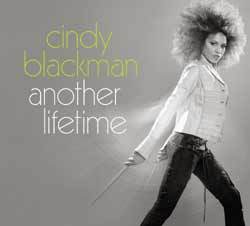I was gonna say it takes balls to attempt a tribute to drum exploder Tony Williams, but obviously those are not essential. Not simply Lenny Kravitz's longtime eye candy behind the tubs, Berklee-trained Cindy Blackman is a serious player who can push the extremes of improvisation; I've seen her, for instance, fire up equal spark in a jam with the ingenious hand drummer Kahlil El'Zabar.
Blackman faces two main challenges here. The main one, natch, is holding a candle to the prodigious Williams. The other is the same one bebop revivalists butt up against -- that of yanking music out of its original time frame. Williams' post-1968 fusion decade radiated a vibe difficult to replicate: It was a time of high adventure and black swagger, fueled by Andean mountains of cocaine. Even the best blow won't transport you back there.
So in general, Blackman doesn't attempt time travel so much as personal reflection, drawing from hunks of Williams material she recorded over a four-year period. It wasn't the sharpest idea to include three variations on Carla Bley's bristly "Vashkar" (originally on Williams' 1969 "Emergency" album), with Mike Stern and Doug Carn standing in for John McLaughlin and Larry Young on guitar and organ. Nothing wrong with the performances, they just lack the original's focus and drive. Stern's flanged flights connect better when he carves the urgent sky on Blackman's stabbing "And Heaven Welcomed a King," whose passion and ascension suggest the subject is the King of Kings, but it could relate to St. Martin as well.
A couple of other guitarists make bold statements. Wide-ranging session man Fionn Ó Lochlainn busts a face with gnarly thrusts on Williams' "There Comes a Time" (from the 1971 album "Ego"), which also features Blackman's affectless but immediate singing. And Vernon Reid rips with firebird energy & ecstasy on Williams' melodic funker "Wildlife" (1975) without treading on Allan Holdsworth's tail.
Out of place but one of the album's bright spots: Blackman's own "Love Song," a tumbledrum ballad executed as a duo with the masterful tenor saxist Joe Lovano. Blackman's rhythm flex and Lovano's harmonic mutations make you think not of Williams but of the wondrous free duets between Elvin Jones and John Coltrane; it's the record's best skins showcase.
Similarly to Williams' studio excursions, Blackman's self-produced tenth album as a leader settles into a rather strange mix; it's got a crowded midrange and actually sounds better on bad speakers than good ones. But overall, she's done justice to her inspiration. And I love the hair.

